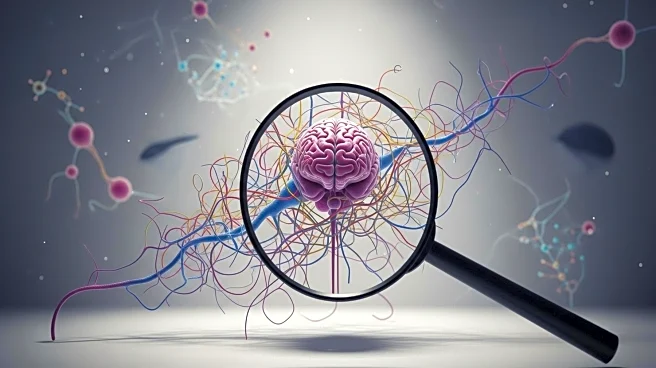What's Happening?
U.S. Secretary of Health and Human Services Robert F. Kennedy Jr. has released a strategy report titled 'Make Our Children Healthy Again: Assessment,' which has been criticized for containing misleading claims about ADHD. The report, part of the Make America Healthy Again Commission's agenda, has been scrutinized by medical experts and researchers for inaccuracies and unproven scientific assertions. Critics argue that the report's misleading statements could increase stigma around ADHD, potentially discouraging parents and educators from seeking necessary support for children. The report's claims include an increase in ADHD diagnoses, the prevalence of stimulant prescriptions, and the impact of food dyes on ADHD symptoms. Experts emphasize the need for accurate information to support educators and students effectively.
Why It's Important?
The report's inaccuracies could have significant implications for public understanding and the support systems available for children with ADHD. Misleading information may perpetuate stigma, making it harder for children to receive proper diagnosis and support. Educators play a crucial role in identifying ADHD symptoms, and misinformation could hinder their ability to provide effective assistance. The report's claims about medication and food dyes could also influence public perception and policy decisions, potentially affecting millions of children diagnosed with ADHD. Accurate information is essential to ensure that children with ADHD receive the support they need to succeed in educational settings.
What's Next?
The controversy surrounding the report may prompt further scrutiny and calls for revisions to ensure that public health communications are based on sound scientific evidence. Stakeholders, including educators, healthcare professionals, and advocacy groups, may push for more comprehensive research and resources to support children with ADHD. There may also be increased efforts to educate the public and policymakers about the realities of ADHD and the importance of evidence-based approaches to treatment and support.
Beyond the Headlines
The report highlights broader issues related to the dissemination of health information and the potential consequences of misinformation. It underscores the need for rigorous standards in public health communications and the importance of addressing stigma associated with neurodevelopmental disorders. The situation also raises questions about the role of government agencies in shaping public perceptions and the ethical responsibilities of public health officials.










